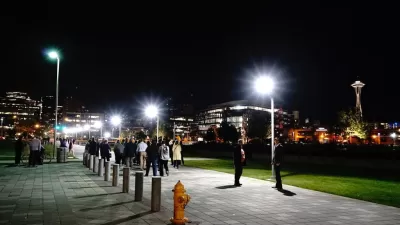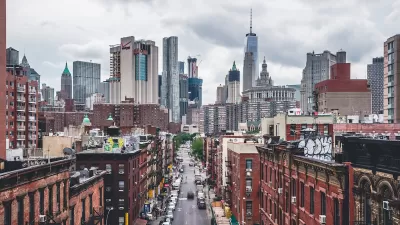Osama bin Laden's brother has announced plans to build the world's longest suspension bridge, connecting Africa and Arabia, and building two state-of-the-art cities at each end -- a project that is expected to cost upwards of $200 billion.
"The brother of the world's most famous terrorist wants to build the world's longest suspension bridge, linking two continents across the world's most dangerous waters. As if that's not enough, he also plans to build two new cities – one at each end."
"If Sheikh Tarek bin Laden is joking, it's an expensive gag. The Al Noor project will cost some $200bn (£100bn) and, according to Sheikh Bin Laden's people, he has already ploughed hundreds of millions of dollars into the scheme himself."
"The project is nothing if not ambitious. A bridge, 18 miles long, will link Africa with Arabia across the Bab al-Mandib (Gate of Tears), the strait connecting the Red Sea with the Gulf of Aden. Two cities, one in tiny Djibouti, the other in Yemen, will sit at either end."
"The new metropolises, the Saudi developer claims, will be the envy of the world: the finest hospitals and schools, world-class universities and sporting facilities – everything will be the biggest and the best. Building them will require a staggering influx of migrant labour. The Djibouti city alone needs 850,000 workers – the country's entire population (children and babies included) is 800,000."
FULL STORY: Bin Laden brother unveils £100bn plan for world's longest bridge

Maui's Vacation Rental Debate Turns Ugly
Verbal attacks, misinformation campaigns and fistfights plague a high-stakes debate to convert thousands of vacation rentals into long-term housing.

Planetizen Federal Action Tracker
A weekly monitor of how Trump’s orders and actions are impacting planners and planning in America.

In Urban Planning, AI Prompting Could be the New Design Thinking
Creativity has long been key to great urban design. What if we see AI as our new creative partner?

King County Supportive Housing Program Offers Hope for Unhoused Residents
The county is taking a ‘Housing First’ approach that prioritizes getting people into housing, then offering wraparound supportive services.

Researchers Use AI to Get Clearer Picture of US Housing
Analysts are using artificial intelligence to supercharge their research by allowing them to comb through data faster. Though these AI tools can be error prone, they save time and housing researchers are optimistic about the future.

Making Shared Micromobility More Inclusive
Cities and shared mobility system operators can do more to include people with disabilities in planning and operations, per a new report.
Urban Design for Planners 1: Software Tools
This six-course series explores essential urban design concepts using open source software and equips planners with the tools they need to participate fully in the urban design process.
Planning for Universal Design
Learn the tools for implementing Universal Design in planning regulations.
planning NEXT
Appalachian Highlands Housing Partners
Mpact (founded as Rail~Volution)
City of Camden Redevelopment Agency
City of Astoria
City of Portland
City of Laramie





























